Cornell Quietly Violated My Civil Rights. Now I'm Taking Legal Action.
Cornell rigged a faculty search to select a candidate based on race, in direct violation of Title VII of the Civil Rights Act.
Reality’s Last Stand is a reader-supported publication. Please consider becoming a paying subscriber or making a one-time or recurring donation to show your support.
About the Author
Dr. Colin Wright is an evolutionary biology PhD, Manhattan Institute Fellow, and CEO/Editor-in-Chief of Reality’s Last Stand. His writing has appeared in The Wall Street Journal, The Times, the New York Post, Newsweek, City Journal, Quillette, Queer Majority, and other major news outlets and peer-reviewed journals.
Introduction
On Wednesday, I announced in The Wall Street Journal that, with representation by the America First Policy Institute, I am taking legal action against Cornell University for racial discrimination in hiring. Newly obtained internal Cornell emails show that the university deliberately excluded qualified candidates—myself included—from a faculty position in my exact field solely because of race. Cornell set up a hidden hiring process to secure a predetermined “diversity hire,” violating federal law under Title VII of the Civil Rights Act of 1964.
This Equal Employment Opportunity Commission (EEOC) complaint provides a fuller account of that discrimination, supported by documentary evidence. It explains the legal basis for my claim, including why the filing deadline should be extended under the equitable tolling doctrine. By concealing the job and using race-based hiring criteria, Cornell denied me—and other qualified applicants—any chance to apply or even know the job existed.
Cornell’s actions were not just unfair or against its own policies—they were illegal. This complaint shows how Cornell intentionally created and carried out a secret, discriminatory hiring plan, kept it hidden from public view, and in doing so caused lasting harm to my career.
My EEOC Complaint Against Cornell
On June 26th, 2025, the America First Policy Institute (AFPI) filed a Civil Rights Complaint against Cornell University for systemic discrimination. That complaint included internal Cornell University emails exposing not just racially discriminatory hiring practices in violation of Title VII of the Civil Rights Act of 1964, 42 U.S.C. 2000e2(a), but the lengths to which Cornell University went to hide their conduct so that otherwise qualified individuals, such as myself, would be unaware that their rights were violated. Simultaneously with AFPI’s complaint, a news story featuring unredacted versions of the emails discussed in the complaint was also published.
In December 2020, the Associate Dean for Diversity and Inclusion, Associate Vice Provost, and Vice Provost in the Office of Faculty Development and Diversity of Cornell University instructed faculty members to “do something a little out of the ordinary”: secure a predetermined “diversity hire” by eliminating open competition entirely. (See Exhibit 1). To ensure their “hoped-for diversity hire” was appointed, these administrators implemented a process that inherently discriminated on the basis of race. The plan was straightforward: identify a candidate who met the University’s preferred “diversity” criteria and invite them one at a time to interview for the role. No other candidates would be solicited, permitted to apply, informed of the available position, or considered, thereby foreclosing any opportunity for merit-based evaluation or equal access to the position.
It appears that Cornell leadership was aware of the illegal nature of this hiring practice, as the email concludes with a bold, underlined statement reminding all recipients to keep these matters confidential, which they were, until concerned insiders recently revealed them.
Another email dated December 13, 2022, exposes Cornell’s continued use of discriminatory hiring practices. While related to a different position, those emails reveal a continued pattern of discrimination by screening applicants in accordance with the University’s preferred race-essentialist viewpoints, and again remind all recipients of the need for “confidentiality” surrounding the hiring practices discussed therein.
Cornell University deliberately engineered a hiring process designed to yield a race-based outcome. University leadership not only expressed an intent to secure a “diverse” hire as defined by racial criteria but actively developed and implemented a plan to ensure that outcome. Applicants who did not meet the University’s race-based preferences were not just systematically excluded—they were not allowed to even know the job opening existed. This was a coordinated and covert scheme to evaluate and select a candidate with University-preferred immutable characteristics, in direct violation of federal anti-discrimination law.
In the internal emails, Cornell leadership repeatedly emphasized the need for secrecy, instructing recipients not to disclose the nature of the hiring process. Such hiring practices are also against the University’s policies:
“Each opening, unless otherwise exempted in this policy, must be posted on the Working at Cornell website for at least five business days.” — Cornell Policy No. 6.6.1. (Exhibit 2)
I routinely viewed and previously applied to faculty positions posted by Cornell University—the faculty position open during the 2020–2022 timeframe in Cornell’s Ecology and Evolutionary Biology department was never posted publicly.
The secrecy surrounding Cornell’s hiring process deprived qualified individuals—myself included—of any knowledge that our rights had been violated. This is precisely the type of injustice the doctrine of equitable tolling is designed to remedy. Although Title VII imposes a statutory time limit for filing claims, the Second Circuit, where Cornell is located, has recognized that such deadlines function as statutes of limitations and are therefore subject to waiver, estoppel, and equitable tolling. See Knowles v. Postmaster Gen., U.S. Postal Serv., 656 F. Supp. 593, 599 (D. Conn. 1987); see also Zipes v. Trans World Airlines, Inc., 455 U.S. 385, 393 (1982).
Equitable tolling is appropriate where a plaintiff is unaware their rights have been violated due to affirmative acts by the employer to conceal the violation. Knowles, 656 F. Supp. 593, 599. That is exactly what occurred here. Cornell officials actively suppressed information about the position and altered the application process to covertly exclude “non-diverse” (i.e., white) candidates. An internal email reveals not only that this exclusion occurred, but that it was enforced through a coordinated effort to keep the process confidential and inaccessible to otherwise qualified applicants.
At the time these discriminatory practices were in effect, I was actively pursuing a faculty position in academia. I earned a Ph.D. in Evolution, Ecology, and Marine Biology from the University of California, Santa Barbara, and recently completed a postdoctoral fellowship at Pennsylvania State University in April 2020 in my field. By that point, I had published 25 peer-reviewed scientific papers, a significantly higher publication rate than many of my peers applying to similar positions at the time. (See Exhibit 3).
The faculty position at issue, as described in the internal Cornell emails, fell squarely within my field—Ecology and Evolutionary Biology—and within the window in which I was actively applying to dozens of comparable positions at similarly ranked institutions.
Had Cornell properly publicized the opening, I would have applied. Instead, the position was quietly reserved for a hand-picked “diversity hire” based on racial criteria. Cornell’s covert and discriminatory employment practices directly impeded my access to a narrow and highly competitive job market for which I was exceptionally qualified.
The harm to my career is not abstract; it is material, measurable, and the direct result of unlawful conduct. Indeed, I had to change career paths since. This change was not voluntary but compelled by exclusion from a profession I had spent over a decade preparing to enter by racially discriminatory hiring practices.
Cornell University’s actions were not mere policy deviations. They were deliberate violations of federal civil rights law that excluded qualified candidates on the basis of race. The concealed, race-based hiring scheme denied me the opportunity to compete for a position squarely within my expertise and field, at a time when I was actively applying nationwide.
Due to Cornell University’s explicit efforts to conceal these hiring practices, I was not aware and could not have been aware that my rights were violated. Cornell University’s conduct requires accountability.
Exhibit 1
Exhibit A
Exhibit B
Exhibit 2
Exhibit 3
Thank you for supporting Reality’s Last Stand! If you enjoyed this article and know someone else you think might enjoy it, please consider gifting a paid subscription below.




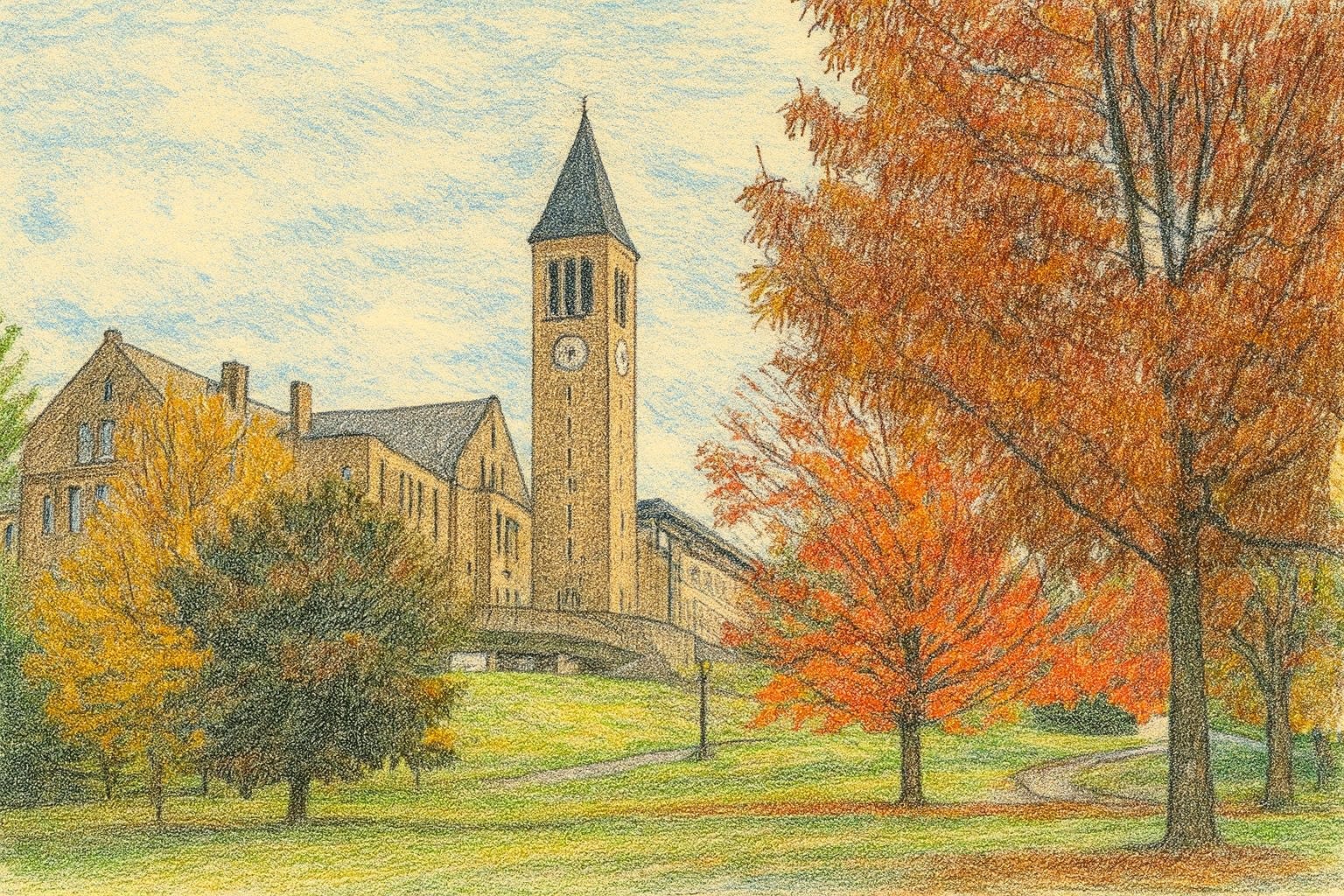


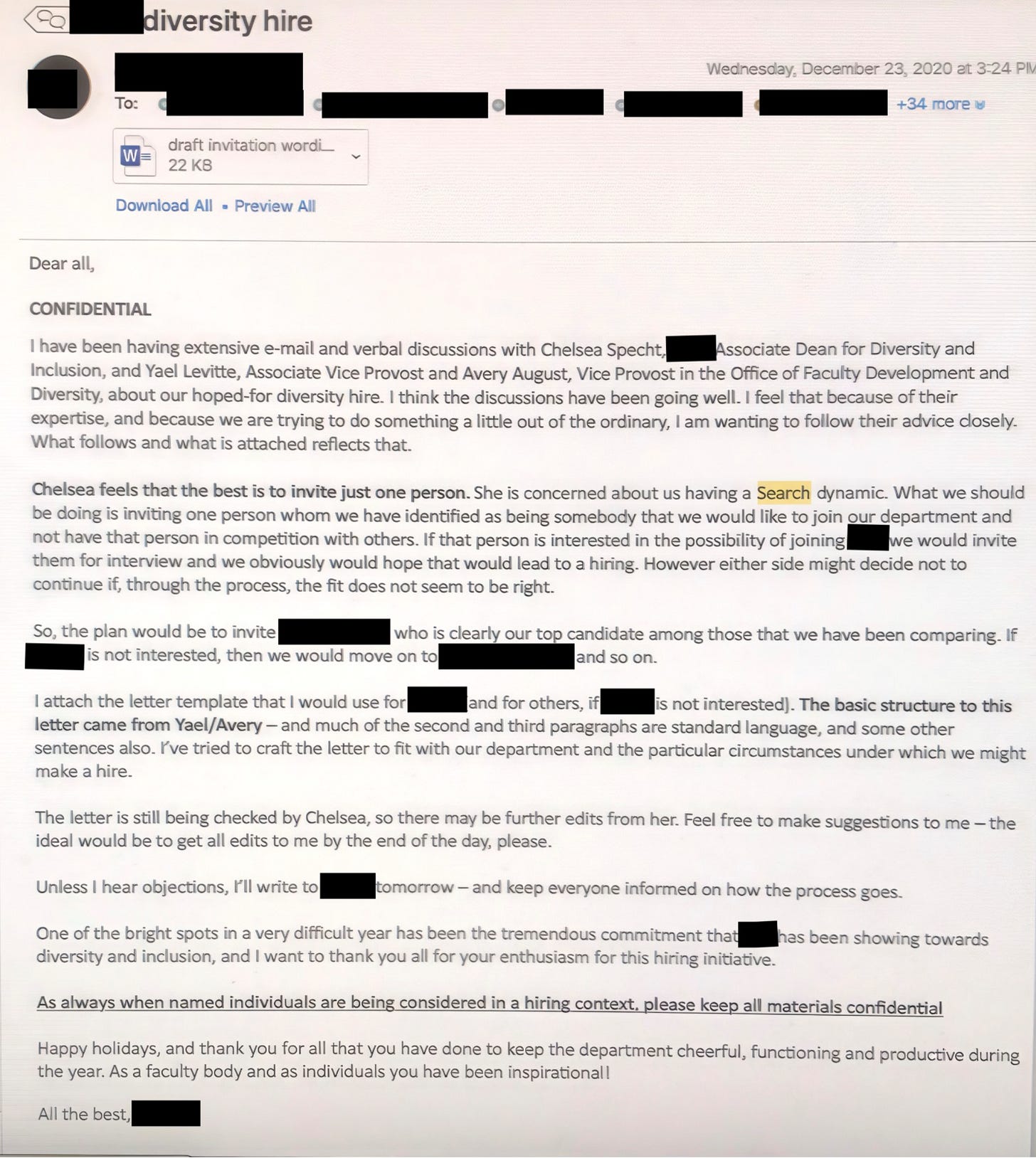
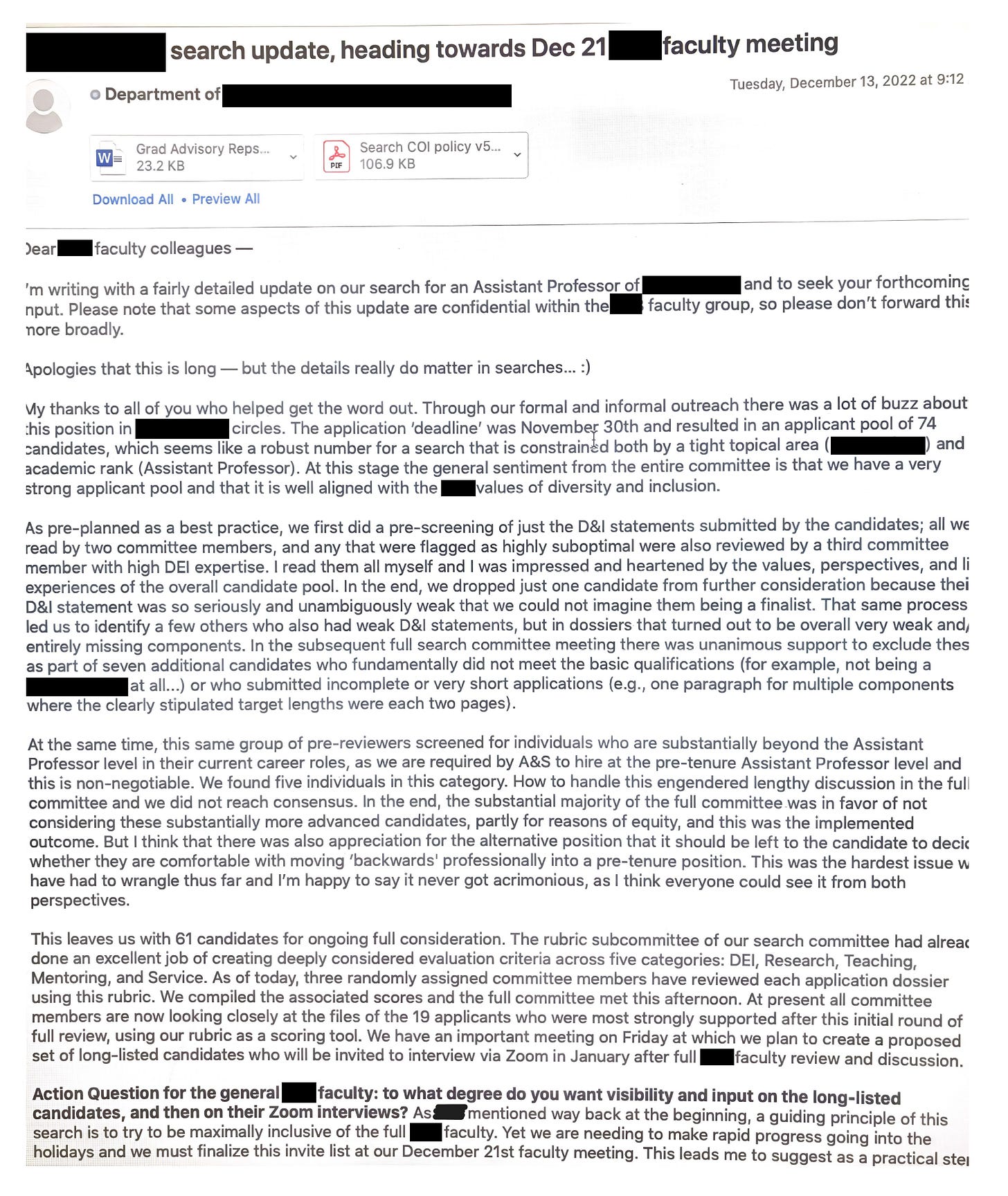

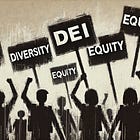

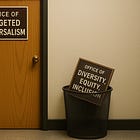

I was an employment lawyer for four decades. And yet, I never cease to be amazed at the brazen illegality—and more importantly, immorality—of what some purportedly “high-minded” institutions are willing to do in pursuit of their agenda. Go get ‘em Dr. Wright!
Having worked for an Ivy League university for more than a decade, I *completely* believe this happened. The systems around hiring were so byzantine that staffers regularly found ways to work around them, and in this instance, I am sure staffers felt the end-runs were not only morally acceptable, but morally heroic. After all, they were protecting diversity!
Let 'em have it.